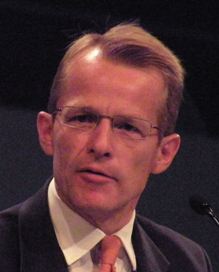Archive for December, 2010
The next ballot in San Francisco could prove to be a bit of a close shave…
… so to speak. According to the Huffington Post,
California’s direct democracy fetish is stepping into new areas viagra tablets including the practice of infant circumcision for religious purposes.
It brings up a number of interesting issues. On the one hand, it raises questions for libertarians – often the most vocal advocates of more direct democracy. The Huffington Post quotes one Heather Wisnicky saying:
It’s your choice, it’s your child…government can’t rule us on everything we do,”
So there’s the oppression of minorities argument for starters. It also addresses some wider issues around family law – the secularist argument that our children must choose their religion for themselves. On balance, I’d probably agree with that one, but we have to ask where it will end. Read the rest of this entry »
Why referendums should be banned
 Apologies again for the light posting.
Apologies again for the light posting.
I’ve female viagra cream written an extensive round-up of the main arguments (that I can think
of) against referendums.
The full post is over on Slugger O’Toole and a slightly edited (shorter) version is on Liberal Conspiracy. Both were published yesterday.
Business people into politics = corruption. Politicians into business = clean?
There was an interesting review of a study around politically connected firms on the BBC’s Thinking Allowed programme recently asking how far different countries find their governance effected by the relationships politicians have with previous (or current!) employers.
The early coalition-casualty, David Laws – for example – is a former Vice President osd Morgan and Alan Duncan used to work for Royal Dutch Shell.
The programme quotes a recent article from Mara Faccio, a US-based Italian economist whose work on politically-connected firms (lots of links from her homepage here) is, in part, er…. inspired … by a desire to understand Silvio Berlusconi’s grip on the Italian state.
Unsurprisingly, there’s a direct correlation between press freedom and low levels of corruption. In the UK, 150 firms have connections to MPs – the highest level of interpenetration anywhere in the world. It’s quite a surprising statistic initially, but in the UK, politicians are offered opportunities to join boards rather than the other way around – where businesses put their people into politics (the strong contrast with Italy). As a result, the benefits to the firms were, according to Faccio, negligible.
It does put all of the recent expenses scandal into perspective though, doesn’t it?
Listen to the whole thing though if you can?

